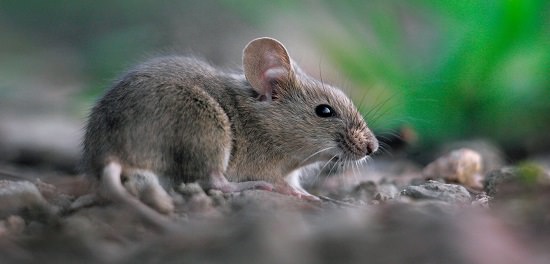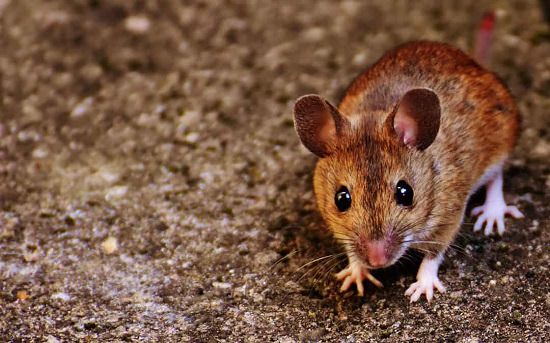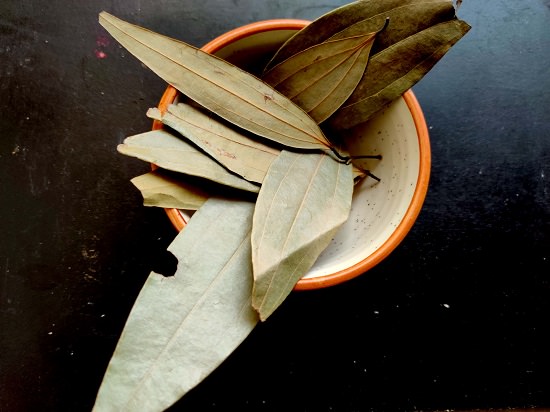Bay leaves are used in various culinary dishes for its flavor but do bay leaves repel mice? Know more about this easy and quick hack here!

Mice belong to the rodent family and are known to multiply very rapidly. They invade homes and other human habitations seeking warmth and food, especially during the winter months. They can chew on wood, cardboard, or even electrical wiring, sometimes setting off fires in homes. Mice are tough to get rid of once they increase in numbers. Professional pest control service is usually the only solution for very severe rodent infestation.
Why you Must Get Rid of Mice?
In addition to the property damage they cause, these omnivores can devour food stocks and also cause serious diseases in humans. By various means, they cause infections by their bite, contaminating food or water sources with their droppings or urine, through blood-sucking mites or insects, through your pets, and when they die inside a water source. They can be especially dangerous when you have babies or very young children in your home.
- The excreta of mice carry plenty of bacteria and can contaminate food and water sources. The dried feces is also dangerous if anyone inhales it. The infamous outbreak of the highly contagious Bubonic plague in Europe during the 14th century was attributed to an infected rodent flea’s bite. It wiped out 1/3rd of the European population. It was called the Black Death as lymph nodes turned black and swollen in the last stages.
- The hantavirus pulmonary syndrome is another deadly disease transmitted by rodents, especially the deer mice. Infection is through exposure or inhalation of infected rodent urine, droppings, or saliva. Symptoms are flu-like that can progress to fatal breathing difficulties. It can also include fatigue, fever, muscle ache, dizziness, chills, and abdominal pain.
- Food contaminated by rodent droppings causes a type of food poisoning called salmonellosis. Symptoms include diarrhea, fever, and abdominal pain.
- Eating food contaminated by rodents or getting bitten by an infected rodent can cause a fatal infectious disease called rat-bite fever. Symptoms include fever, headache, rashes, vomiting, and muscle aches.
- Mice can also cause meningitis, an inflammation of the brain called lymphocytic choriomeningitis.
Ways to get rid of mice infestation in your home:

If you see droppings, chewed food or articles, and hear scampering noises, especially at night, there’s a possibility that these unwanted pests have invaded your home. The most important preventive rule for rodent infestation is to maintain a clean home devoid of clutter. Mice love houses which have plenty of stuff, as it offers them places to hide. So don’t hoard things, and make sure you clean your home regularly. Keep all foodstuff well covered and in containers that are hard to chew through. Make sure that you seal the tiny cracks and crevices in your home immediately.
Simply sweeping up mice droppings and urine or vacuuming them is neither an effective strategy nor a safe one. Instead, wear protective gear like masks and gloves and spray disinfectant on contaminated surfaces and wipe the areas with disposable towels. Make sure you dispose of the towels in sealed bags. You will have to disinfect all the areas again and then have a shower to ensure your safety.
There are traps available to trap mice, but they are messy and unsafe as you have to still dispose of the mice. Using rodent poisons pose a risk if you have young children at home. Dead rodents can start stinking inside your house, and besides, disposing of them is not easy and can be fatal to the birds and animals that prey on these rodents.
Home Remedies to Get Rid Of Mice
- Mice dislike the smell of peppermint oil and clove oil. Place cotton balls dipped in either peppermint oil or clove oil in vulnerable places in your home.
- Mix a tbsp of cocoa powder with plaster of Paris and sprinkle around your home to attract the mice. Once they eat the powder, the plaster of Paris causes suffocation and dehydration and causes them to rush out and die.
- Sprinkle hot pepper flakes along doorways and corners to keep the mice out.
- Pungent smelling onions and garlic also help repel rodents. Place them near small openings or cracks in your home.
- Sprinkling ammonia on rodent holes can kill them.
- Sprinkling mint leaves around your house also keeps mice away as they dislike the smell of mint.
Do Bay Leaves Repel Mice?

Bay leaves are aromatic leaves used in cooking to lend flavor to dishes. The bay leaf has to be removed from the food and cannot be eaten as humans cannot digest the leaf. The leaf can also choke the throat or slit the lining of the intestines. Similarly, the bay leaf can choke mice when they try to eat the leaves. Bay leaves hence prove an effective weapon in the arsenal against mice.
Also Read: Bay Leaves with Other Ingredients to Repel Mice
Crush some bay leaves and place them in strategic locations in your house where you suspect the mice are hiding or are active. These leaves are toxic to mice. When the mice try to eat the aromatic leaf, they choke and die. Replace the leaves every third day for an effective remedy to keep mice away.
